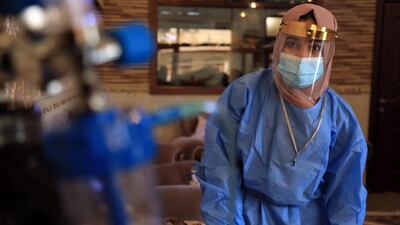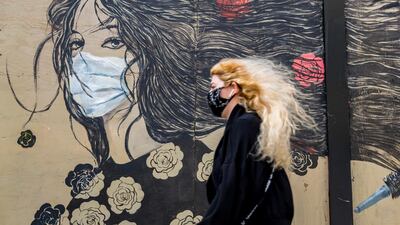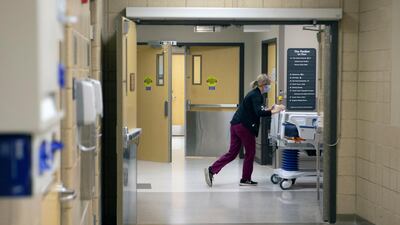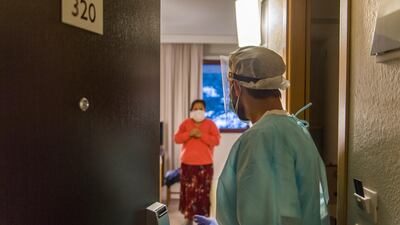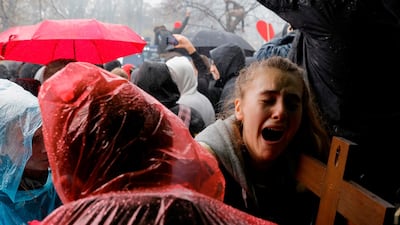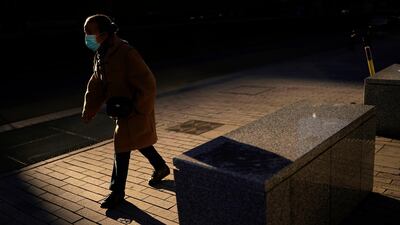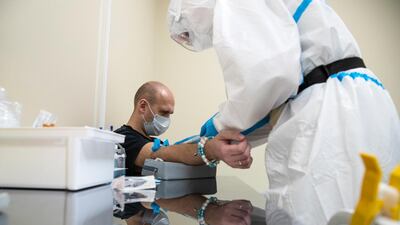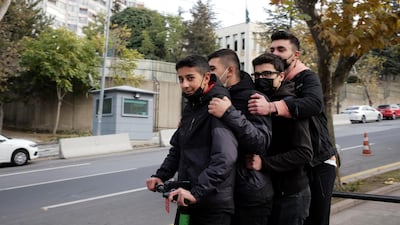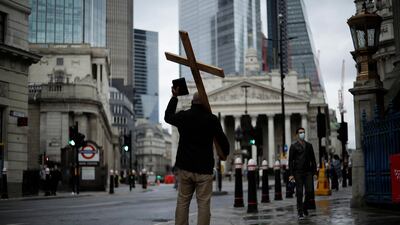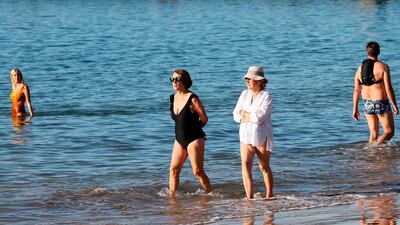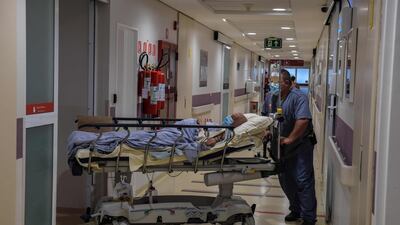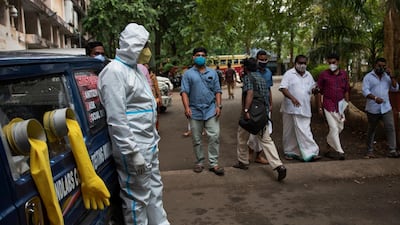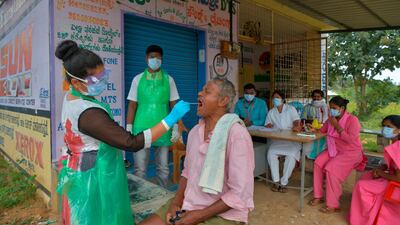Erbil Governor Firsat Sofi died on Wednesday in Turkey where he was receiving treatment for Covid-19 as the World Health Organisation warned Iraq is set for a large rise in cases over the winter.
Mr Sofi, 42, was the head of the Covid-19 Task Force in the Kurdish city and led efforts to combat the pandemic since March.
The official in the capital of the northern Iraqi Kurdish autonomous region assumed office in mid-October 2019, making him the 41st governor of Erbil, after serving as a member of the Kurdistan Parliament.
Mr Sofi also used to be a lecturer at Erbil Polytechnic University.
Kurdish and Iraqi flags were flown half-staff at governorate building in Erbil in honour of Mr Sofi.
Tributes poured in as many offered their condolences to his family and loved ones.
“Dr Firsat was a humble patriot and a dutiful public servant, who faithfully carried out his duties as Governor of Erbil and worked tirelessly in his service to the public," said a statement by the Kurdish Regional Government.
The late governor will be repatriated to the Kurdistan Region and will be laid to rest in the city of Erbil, said the statement.
“He was passionate, energetic and genuine. He supported reform and wanted to bridge the gap between people and government. He fought Covid-19 at the front line,” said Dlawer Alaaldeen, founding president of the Erbil-based Middle East Research Institute.
But Iraq will witness an increase in coronavirus cases as the winter season hits causing more deaths across the country, the World Health organisation warned this week.
The country’s healthcare, among other infrastructure, has been stretched by years of sanctions, war and neglect, one among several problems that spurred mass anti-government protests in recent months.
“As temperatures will drop and the winter season approaches Iraq will see a rise in the number of coronavirus cases,” Adham Ismail, WHO Representative and Head of Mission in Iraq said during a press conference.
“We will continue to raise awareness, provide medical services and help citizens until the crisis is over," he said.
Since the outbreak of the virus, earlier this year, Iraq has recorded 521,542 confirmed cases with 11,712 deaths.
The country’s health ministry is recording up to 3,000 daily infected cases.
On Thursday, Iraq reported 2,374 new cases and 39 deaths.
“The recent resurgence of the virus worldwide scaled up the challenge for WHO and the health authorities in Iraq and until a treatment or a vaccine is globally introduced, we will have to maintain our collaboration and joint action to control the spread of the pandemic," he said.
Awareness must be raised "on the importance of mask-wearing, physical distancing, and good hygiene practices,” Mr Ismail said.
Covid-19 around the world in pictures
Health Minister Hassan Al Tamimi said he will push to increase the country’s testing capacity to help inform officials on how to contain the spread of the virus, the ministry said in a separate statement.
Mr Al Tamimi said the government must set up oxygen factories across the country to ensure supplies for the worst cases, in addition to rolling out a health awareness campaign for the general public.
The pandemic has hit the economy hard as it comes with a slump in oil prices – the main revenue source for the government.
The government announced a lockdown in late May but eased several months later to prevent a total stalling of the economy. While they brought back temporary curfews and restrictions for holidays, the government has resisted calls for another national curb despite rising cases.
